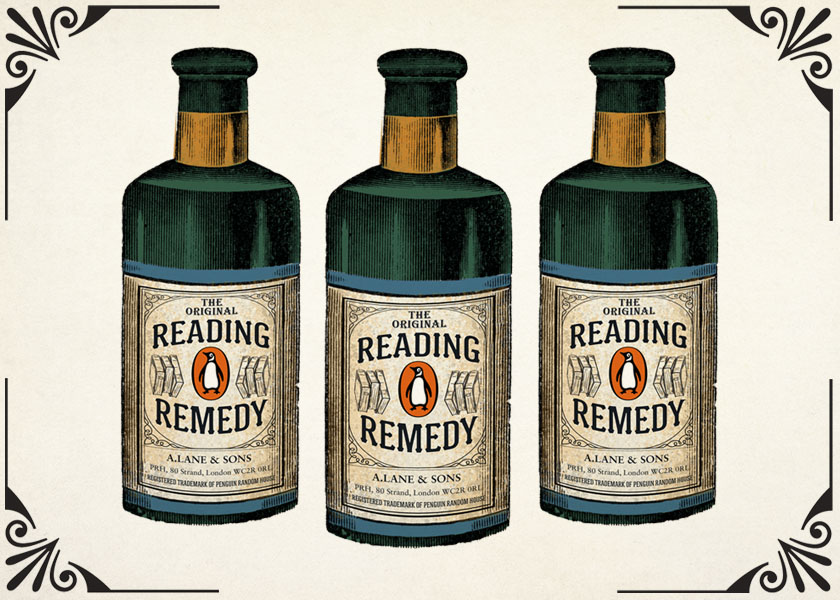- Home |
- Search Results |
- Reading Remedy: food, glorious food

When we come out of this lockdown and are asked how we spent our waking hours, many of us will say we spent it thinking about food.
We made banana bread, and Dalgona coffees. We tried a pasta dish cobbled together from all the leftover packets that have been hiding at the backs of our cupboards for months. We used up sad-looking veg in a pie/casserole/stew hybrid. We were in our very own telling of The Very Hungry Caterpillar.
That is, of course, if we were lucky. For many, lockdown has been a time when the struggle to feed ourselves and our families became harder, and we saw more starkly than ever the social inequalities that somehow make food a privilege instead of a right.
Whatever our circumstances, the lockdown is likely to have given us a renewed appreciation for food: a joy reflected no where more clearly than in books.
We might remember Matilda spelling 'difficulty' or Miss Truchbull swinging Amanda by her pigtails, but the thing we revelled in from Roald Dahl's classic novel is Bruce Bogtrotter eating his 'enormous round chocolate cake' that was 'eighteen inches in diameter…covered with dark-brown chocolate icing'. Who as a child, and even now as an adult, hasn't fantasised about eating a full chocolate cake and, as Bruce Bogtrotter did, feeling no remorse or guilt, only joy?
As children, food in books holds a special appeal, even if in reality a dish might not be appealing. After reading Enid Blyton's novels, the idea of ginger beer as something delicious remained with me for years, until I finally tried it (at university, sitting on the floor between lectures) and discovered it was, to put it politely, not to my taste. Still – Blyton, and in particular The Enchanted Wood, will always make me want to eat toffee and Pop Biscuits and visit The Land of Birthdays where I can wish my own tea into existence.
If you could wish food into existence, it would likely be a plate of something you have a special connection with, because food is partially a matter of taste and partially an exercise in memory and emotion.
In A Half Baked Idea, her memoir of how grieving the death of her mother led her to cooking, Olivia Potts speaks of how 'puddings are emotional…bound up in memory and nostalgia.'
'I don’t make rice pudding for nutritional balance; I make rice pudding to remind me of the way my grandma's house smelt and tasted,' Potts writes. 'Do you remember the first time you cracked a creme brûlée with the back of a spoon? The magic of the immaculate, brittle shell shattering to the smoothest vanilla custard beneath. I do. I was nine, maybe 10, and in Normandy on holiday with my family: I tried so many new foods that summer. But it was the creme brûlée that really stuck.'
In many of Charles Dickens' novels, the best food is that which fulfils a physical need first, and therefore becomes about something else (gratitude, friendship, human connection): Oliver taking delight in basic porridge and wanting more, or Magwitch scarfing down bread and cheese and other "victuals" on a misty morning after having escaped from jail.
This coronavirus lockdown is not jail and we are not serving a prison sentence. But, when we are finally able to escape our homes, it will be the joy of food – the food that we ate, the food that we didn't, the food that we're looking forward to – that will be one of the defining parts of our experience.